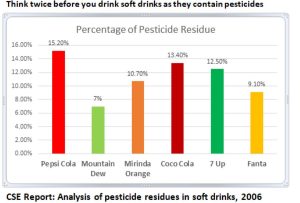Endocrine Disrupting Chemicals & Fertility

Endocrine Disrupting Chemicals & Fertility:
Parenthood is an exceptional journey, but it could be a bumpy ride for many fertility-challenged couples. Many are aware of factors like obesity, advanced maternal age, lifestyle, smoking, and other medical reasons that can have a negative impact on one’s fertility. But not many of you know that EDCs (Endocrine Disrupting Chemicals) hamper fertility and are present in things that you use in your day-to-day life.
What are EDCs?
Chemicals/natural substances that mimic hormones thereby preventing the natural hormones from functioning are called endocrine-disrupting chemicals. They are present in household items, children’s toys, makeup items, etc.
It is also present in Heavy metals, Occupational chemicals, Industrial contaminants, Agricultural chemicals & Industrial solvents. EDCs affect conception and also result in many other complications.
Several studies have indicated that genital use of talc can lead to an increased risk of epithelial ovarian cancer in women.
List of common EDCs:
- Bisphenol A (BPA)
- DDT
- Phthalate
- Triclosan
Think twice before you drink soft drinks as they contain pesticides

CSE Report: Analysis of pesticide residues in soft drinks, 2006
Common Household Items containing EDC:
| Children’s toys (lead-based paints on toys and PVC toys) |
| Plastic food storage materials |
| Screen printing inks |
| Adhesives added to plastics |
| Nail polish containing dibutyl phthalate and triphenyl phosphate |
| Shampoos containing parabens, formaldehyde, diethyl phthalate |
| Deodorant containing propylene glycol, synthetic fragrances |
| Makeup items containing methyl paraben, butyl paraben, Di-2-ethylhexylphthalate (DEHP) |
| Toothpaste containing titanium dioxide, triclosan |
Effect of EDC on Women’s reproductive health and unborn child:
- Can affect conception
- Can have a negative impact on neonatal health
- Can alter the onset of puberty
- May lead to cognitive and behavioral impairment
- Can lead to autistic spectrum disorders in the child
Effect of EDC on Men’s reproductive health
- Can affect sperm quality
- May affect sperm production
Exposure to EDCs during pregnancy can also lead to the incidence of genital malformations such as non-descending testes, penile malformation, and preterm birth.
How to reduce exposure to EDCs?
- Use products that are BPA free
- Avoid heating food in plastic containers
- Avoid fragranced soaps
- Dust and vacuum often (to remove flame-retardant chemicals from household items)
- Choose fragrance-free creams, cleaning products, and laundry detergents
- Avoid canned foods
- Look at the labels before you buy any product
- Try to consume foods that are produced without the use of pesticides










